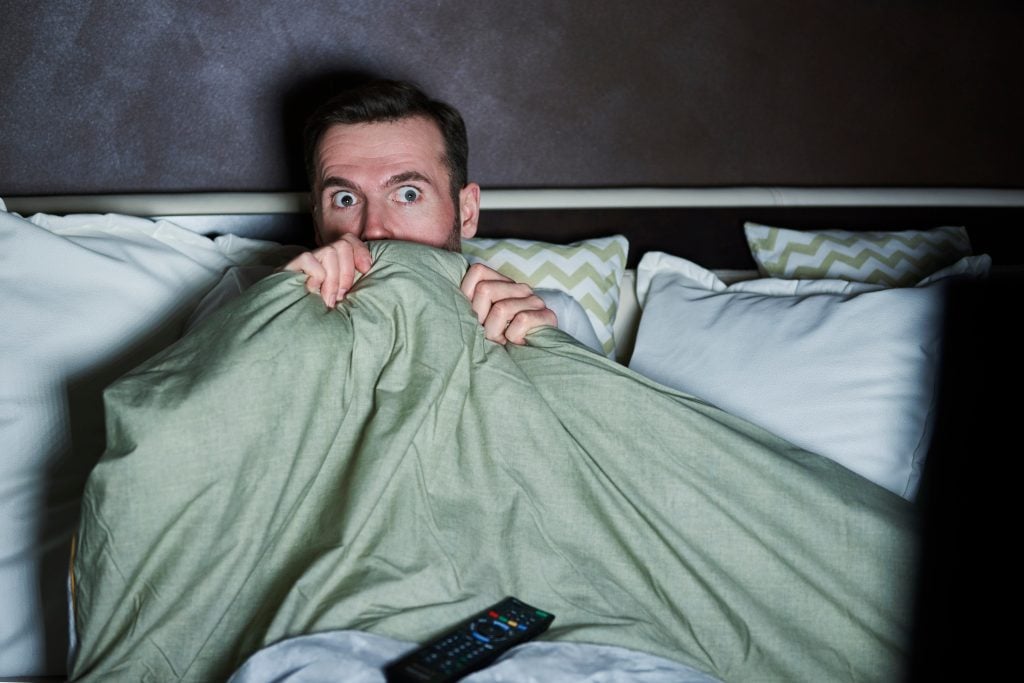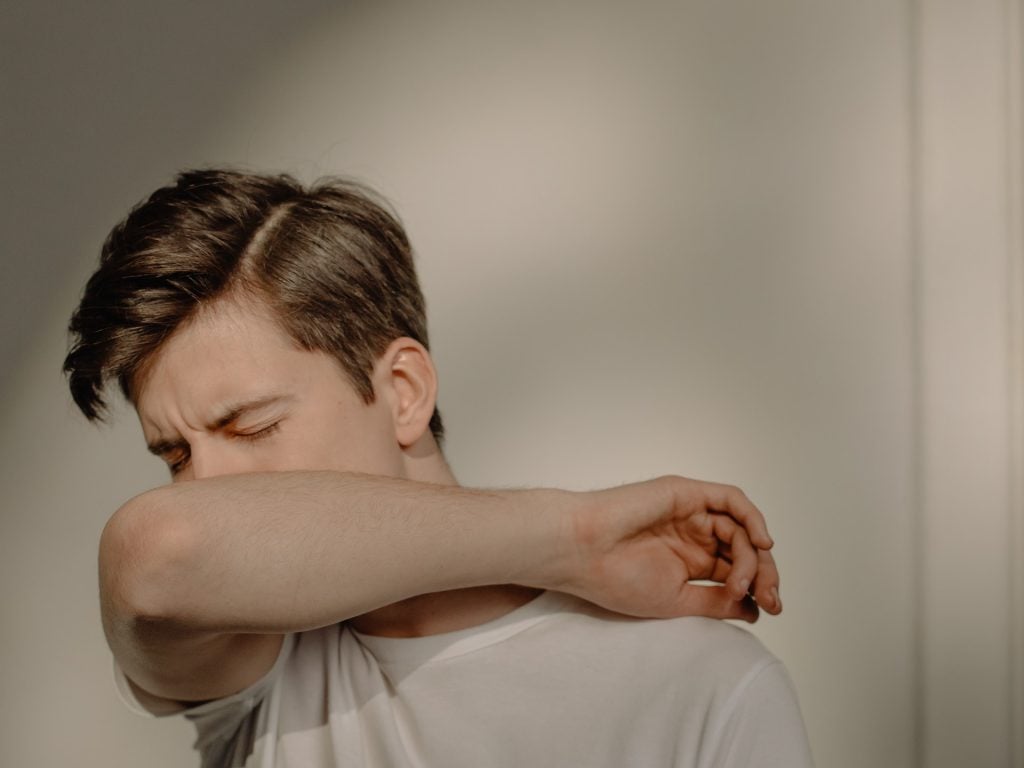 Scared man watching horror movies at night
Scared man watching horror movies at night
Halloween is upon us, so what’s the best way to celebrate? Frighten you with some unusual and scarily relatable sleep facts of course! Read on and you may just be truly terrified with the list of creepy facts about sleeping we’ve put together…
Although not particularly common, sleep paralysis is said to be horrifying to people that experience them. During an episode, a person will be either waking up or falling asleep but is stuck in between these two states temporarily. The main symptom is losing the ability to move and speak but being completely aware of your surroundings – like your mind is awake but your body is asleep. It can last for several seconds to minutes as people experience episodes differently.
The scariest part of it all is that lots of people have hallucinations when in this paralysed state, claiming to have seen figures, ghosts or spirits that want to harm them. These hallucinations have been partially explained by the blurred boundary of being asleep and/or awake, as sleep paralysis normally occurs after the last stage of the sleep cycle when dreaming occurs.
Some scary facts about sleep you may not want to hear, especially because this can apply to just about anyone! As we spend a third of our lives in bed, we leave traces of ourselves on our beds like sweat, dead skin cells and hair. These are what dust mites feed off – but luckily they don’t bite us as a bed bug would.
However, as we shed up to 10 grams of dead skin cells a week, it means there can be numerous microscopic dust mites living in our mattresses and pillows. Not to alarm you… but a mattress that’s fairly used can have anywhere from 100,000 to millions of dust mites residing inside. You’ll find this for many furniture pieces that could have a high amount of skin cells around, such as living room furniture and carpets. Gross!
Sleepwalking is an interesting phenomenon that no one can fully understand or explain. What makes it so mysterious is that the causes of sleepwalking are not known, but it has mainly been put down to lack of sleep, having a fever or taking specific medications. Although it’s much more common in children, you can still sleepwalk as an adult.
There are some scary stories of people driving long distances whilst they’ve been in the state of sleepwalking, and that’s why it’s important to wake someone up if they are. Commonly, people believe that you shouldn’t wake someone when they’re sleepwalking, but it’s actually harmless and much more dangerous to not stop someone. This is especially so for cases where people could get in their cars, potentially putting themselves and others at risk.
Sleep deprivation can have some alarming effects on our bodies. It’s said that if you can fall asleep within five minutes or less, you’re probably sleep-deprived. If you’re not getting as much sleep as you need consistently, you’ll be more susceptible to forgetfulness, depression and anxiety. Surprisingly, lack of sleep can also age your brain by a year or two.
Lack of sleep can also cause our immune systems to work for us less, making it three times more likely to catch a common cold. However, it can lead to more serious problems, increasing the risk of developing heart disease, high blood pressure and type 2 diabetes. Quite scary, right?
Becoming a parent can be a real shock to the system, especially when it comes to sleep. Many studies have shown that adjusting to less sleep is the biggest obstacle that new parents have to overcome. That’s right, not the parenting itself! It’s no joke, with some reports saying that adults can lose up to 6 months’ worth of sleep in the first 2 years of their child’s life – that’s losing a quarter of the sleep you would’ve usually got. Losing that amount of sleep every night is certainly enough to scare anyone.

This one may be the light at the end of the tunnel. We’ve all probably heard that we eat up to 8 spiders in our sleep every year. If you’re afraid of arachnids, then you’ll be pleased to know that this is an old myth. It’s said that this ‘fact’ was circulated in the 90s to see if people would believe such an outlandish fact, so essentially it was the ‘fake news’ of today! The chances of a spider crawling into your mouth when you’re sleeping is so unlikely, let alone 8 out of 365 times a year!
And there you have it… some rather spooky sleep facts. It just goes to show how important sleep is for our functioning.